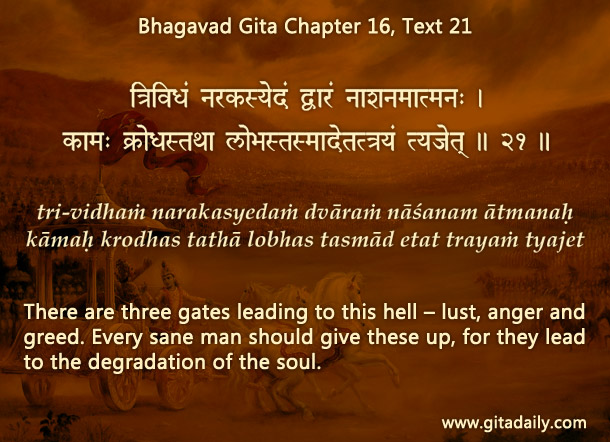The Bhagavad-gita in its second chapter repeatedly stresses the indestructibility of the soul. Yet the same Gita in its sixteenth chapter talks twice (16.09; 16.21) about the destruction of the soul. Why this contradiction? Because the initial verses refer to the constitution of the soul, whereas the later verses refer to our spiritual cognition, our capacity to perceive the existence of the soul. Though the soul can never be destroyed, our awareness of its existence can be.
Fanatical materialists, by their ideological narrow-mindedness, leave no place in their conceptual cupboard to even consider the possibility of the existence of the soul.
Our awareness of things depends largely on how our intellectual and emotional faculties are tuned. Among the many things that surround us, we become aware of those things that either challenge us to make sense of them or stimulate us to feel them. Accordingly, our awareness of the soul can be destroyed either intellectually or emotionally. The first Gita verse (16.09: nashtaatmaano) refers to intellectual destruction. It talks about those who accept a fanatically materialistic worldview. Such people, by their ideological narrow-mindedness, leave no place in their conceptual cupboard to even consider the possibility of the existence of the soul. That’s how they intellectually destroy their awareness of the soul. The other verse (16.21: naashanam-atmanah) refers to emotional destruction. It talks about those who are totally captivated by the materialistic emotions of lust, anger and greed. The consciousness of such hedonists is so consumed with hopes for getting material enjoyment and worries about not getting it that they just can’t think of anything else such as the soul. That’s how they emotionally destroy their awareness of the soul. Thankfully, such destruction of awareness is reversible. We can counter intellectual destruction by studying Gita wisdom and emotional destruction by elevating our emotions through the practice of bhakti-yoga. Thus, we can regain our spiritual awareness and rejoice eternally in the soul’s joyful nature.
Explanation of article:


Leave A Comment